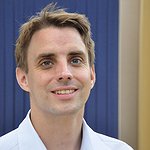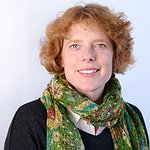
Graduate School "RePliV"
For pluralistic societies, peaceful coexistence between members of different religious communities and non-religious people is a fundamental challenge. But how could such a peaceful existence be possible? What sort of consequences does increasing religious diversity bring about? Moreover, how do politics, the economy, media and civil society influence the processes of religious pluralism? And how do religions regulate themselves within a pluralistic environment? From January 2021 until June 2024, the graduate school "Regional Regulation of Religious Plurality in Comparison" (Regionale Regulierung religiöser Pluralität im Vergleich, RePliV) will address these central questions. Ten doctoral students will conduct research in individual projects, each five from the Center for Religion and Modernity (CRM) at the University of Münster and from the Center for Religious Studies (CERES) at the Ruhr University Bochum. They are supported by experienced scholars from a wide range of disciplines.
Other important goals are dialogues with a broad public and the cooperation with practice partners, such as religious communities, administrations, media and civil society organizations. Together, research questions are developed, needs for action are identified, and practical solutions are developed.

The first project phase (2016 to 2020) was entitled "Religious Plurality and its Regulation in the Region" (RePliR, Religiöse Pluralität und ihre Regulierung in der Region). The focus was on Münsterland and the Ruhr region. The graduate school has been funded by the North Rhine-Westphalian Ministry of Culture and Science and is a joint project of CERES and the Center for Religion and Modernity (CRM) of the University of Münster. The aim of the research group is to investigate religious plurality and its regulation, to analyze its effects and potential conflicts in other areas of society, and to identify possible solutions. Ten doctoral students tackle this task with their individual projects. They are supervised by university lecturers from various disciplines. The disciplines are broadly diverse, ranging from the study of religion to history, media studies, law, and economics. The doctoral students are in regular exchange with partners from various areas of social practice. The spectrum ranges from the diocese of Essen to the public broadcaster WDR and the German Humanist association. Through this conception, the graduate school investigates research questions from history to the present.
Contact person



